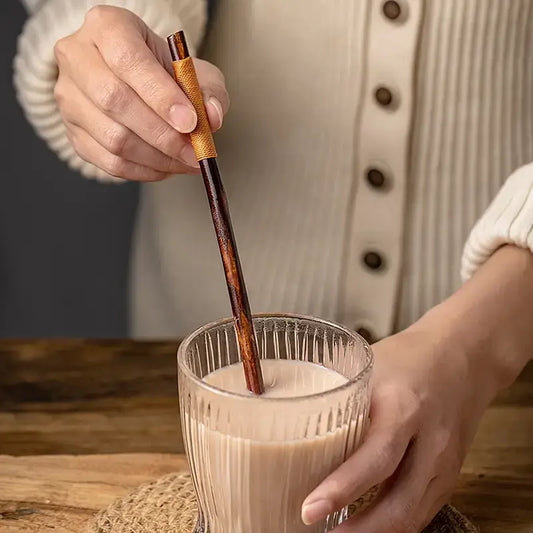Crafted for Comfort: Discover the Japanese Spoon
Subtle in design yet deeply thoughtful in purpose, the Japanese spoon is a small but significant element of the nation’s culinary culture. Whether cradling a delicate scoop of miso soup or delivering silky ramen broth, Japanese spoons elevate the dining experience with form, function, and finesse.
From lacquered wood to glazed ceramic and sleek porcelain, each spoon is designed not just to serve, but to enhance the connection between food, vessel, and hand. In Japan, even the most humble utensil carries the values of mindfulness, ergonomics, and beauty.
A Functional Legacy: The Evolution of Japanese Spoons
Unlike Western tableware, Japanese cuisine traditionally relied on chopsticks and bowls. But spoons — particularly for soup-based dishes and desserts — became essential as food styles evolved and Chinese and Korean influences were incorporated.
| Spoon Type | Use | Typical Material |
|---|---|---|
| Renge (Ramen Spoon) | Broth, noodles, toppings | Porcelain or ceramic |
| Miso Soup Spoon | Light soup, tofu, seaweed | Lacquerware, wood |
| Dessert Spoon | Jelly, mochi, custards | Glazed ceramic or bamboo |
| Ceremonial Spoon | Tea sweets, ritual tasting | Handcrafted lacquer or gold leaf |
Spoons in Japan are rarely mass-produced afterthoughts. They're crafted objects meant to complement the dish they serve.
Why the Japanese Spoon Is a Perfect Blend of Utility and Beauty
Small in size but rich in detail, Japanese spoons offer more than convenience:
Ergonomic Comfort: Curved bowls and short handles fit comfortably in hand and mouth.
Culinary Harmony: Designed to support slurping, scooping, and sipping.
Visual Appeal: Often adorned with traditional glazes, textures, and subtle motifs.
Material Mindfulness: Natural woods, warm ceramics, and biodegradable bamboo speak to eco-conscious living.
Ceremonial and Everyday Roles: Used in casual dining, refined Kaiseki, and sacred tea gatherings alike.
This isn’t just a utensil — it’s a celebration of intention in everyday rituals.
Styling and Serving with Japanese Spoons
Whether placed in a bowl of steaming ramen or set beside an artisanal dessert, the right spoon completes the presentation.
| Dish | Spoon Type | Presentation Style |
| Ramen | Porcelain renge | Resting in bowl or in matching holder |
| Miso Soup | Wooden spoon | Floating handle-up in small bowl |
| Chawanmushi (egg custard) | Ceramic tasting spoon | Served on side tray or lid |
| Sweet tofu or yokan | Bamboo spoon | With seasonal garnish or flower |
| Matcha sweets | Lacquerware scoop | Laid across tenugui (cloth) |
Tips:
-
Match spoon texture with the dish’s tone: wood for rustic, porcelain for refined.
-
Use chopstick rests or ceramic holders to elevate spoon when not in use.
-
Pair with bowls that echo the shape or glaze of the spoon.
Pairings and Accessories to Elevate the Experience
Enhance your spoon presentation with intentional accessories and settings:
| Accessory | Benefit |
| Chopstick & spoon rest set | Clean presentation, functional resting place |
| Matching bowl or dish | Cohesive look and tactile harmony |
| Lacquered trays or bamboo mats | Framing the scene with tradition |
| Small floral or seasonal accent | Adds emotion and elegance to service |
| Tenugui or furoshiki cloth | Background texture and cultural reference |
These pairings reflect Japan’s focus on unity between tools, ingredients, and occasion.
The Spoon as a Symbol of Subtle Mastery
The Japanese spoon is a quiet hero of the table. It delivers nourishment and intention with every bite. Whether carved from cedar, shaped from clay, or painted with seasonal motifs, it brings artistry to even the smallest gesture.
To use a Japanese spoon is to practice presence. To own one is to honor simplicity.
Let it rest gently. Let it lift flavor and form.
The Japanese spoon is more than a tool — it is a philosophy in your palm













